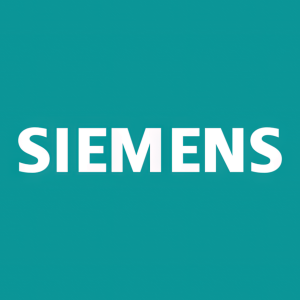Siemens Showcases Its Integrated Modular Production Solution That Leverages Its SIMATIC PCS 7 and SIMATIC Batch With Biostat STR DCU From Sartorius
Siemens recently announced that it can provide a fully integrated modular production solution by leveraging its SIMATIC PCS 7 and SIMATIC Batch and Biostat STR DCU from Sartorius. A demo is being showcased at the Sartorius Application Center in Bohemia, New York.
One way to obtain flexibility and speed in the biopharmaceutical industry is modular production—production using individual smart components that are flexibly arranged into a production line and orchestrated by an overarching control system. The solution delivery is a at lower costs and faster timelines compared to a traditional control system.
"If individual elements, such as building blocks, can be joined together in different ways, production lines can be set up quickly and easily changed," said Pamela Docherty from Siemens, explaining the advantages of modular production. The consequence of this flexibility of modular production systems: The process flow diagrams change frequently. This is challenging when trying to automate these systems.
Siemens’ demo shows an example of how to create, start, run, end and review a batch from SIMATIC PCS 7. The seamless integration of Sartorius equipment in a Siemens Distributed Control System (DCS) enables a scalable, fully automated facility that brings cGMP compliance, visualization, and data storage with the option of fully paperless manufacturing facility. The benefits of the SIMATIC PCS 7 and SIMATIC Batch can be realized on both greenfield and brownfield installations.
While the process equipment used to be automated via remote I / O, the individual components are intelligent or self-sufficient with modular production. Therefore, the “integrated package units” can stand on their own. However, to form a production line, they need to interact with each other. This can be achieved by adding an orchestration system, such as a DCS from Siemens, SIMATIC PCS 7.
An agreement between Sartorius and Siemens allowed the companies to build standard interfaces between the Sartorius unit operations and the Siemens control system that enables a much closer integration than what was possible before.
“As an end-to-end solution provider for the biopharmaceutical industry, we must be able to adapt to the ever-changing needs of our customers,” says Jacob Slivka, Head of Sales Integrated Solutions North America, Sartorius. “Our work with Siemens is helping customers bring their concepts to realization faster than ever.”
Siemens Digital Industries (DI) is an innovation leader in automation and digitalization. Closely collaborating with partners and customers, DI drives the digital transformation in the process and discrete industries. With its Digital Enterprise portfolio, DI provides companies of all sizes with an end-to-end set of products, solutions and services to integrate and digitalize the entire value chain. Optimized for the specific needs of each industry, DI’s unique portfolio supports customers to achieve greater productivity and flexibility. DI is constantly adding innovations to its portfolio to integrate cutting-edge future technologies. Siemens Digital Industries has its global headquarters in Nuremberg, Germany, and has around 75,000 employees internationally.
Siemens Corporation is a U.S. subsidiary of Siemens AG, a global powerhouse focusing on the areas of power generation and distribution, intelligent infrastructure for buildings and distributed energy systems, and automation and digitalization in the process and manufacturing industries. Through the separately managed company Siemens Mobility, a leading supplier of smart mobility solutions for rail and road transport, Siemens is shaping the world market for passenger and freight services. Due to its majority stakes in the publicly listed companies Siemens Healthineers AG and Siemens Gamesa Renewable Energy, Siemens is also a world-leading supplier of medical technology and digital healthcare services as well as environmentally friendly solutions for onshore and offshore wind power generation. For more than 160 years, the company has innovated and invented technologies to support American industry spanning manufacturing, energy, healthcare and infrastructure. In fiscal 2018, Siemens USA reported revenue of
View source version on businesswire.com: https://www.businesswire.com/news/home/20210216005876/en/







